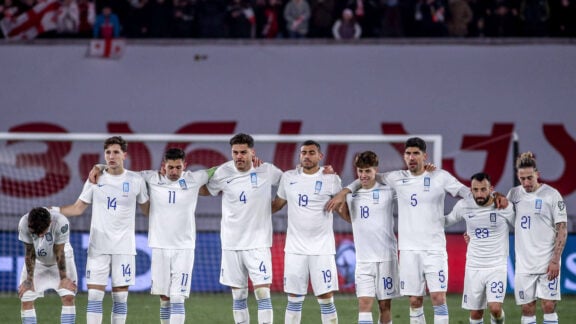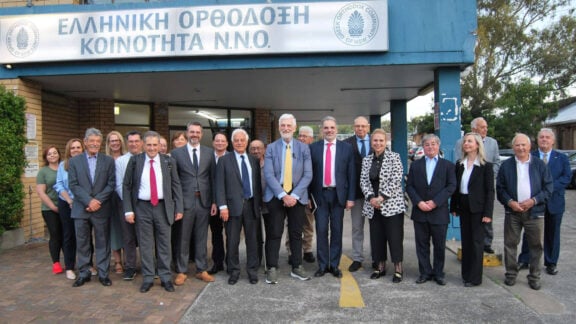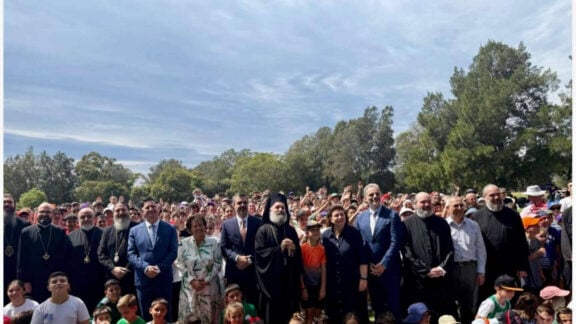As an American convert to Holy Orthodoxy that is currently attending seminary, I am taken aback by the crux of Jeana Vithoulka’s article. While I believe she is genuine in her good intentions, her argument for a more inclusive Communion is reckless and unwarranted. I will go point by point and give my input as an Orthodox Christian who is currently studying for holy orders.
“I have never once heard any priest declare that only people baptised into that particular branch of Christianity were allowed to partake in Holy Communion.”
– The Orthodox are not alone in the practice of “closed” communion (that is, communion only for baptised members in good standing). The Roman Catholics, the Coptic Church and some of the more conservative Protestants (such as Continuing Anglicans) also have this practice.
“Because that declaration [of closed communion] is about division, exclusion and petty elitism… It is about a refusal to acknowledge the pluralistic nature of the society we live in, it’s about a lack of respect for others and deepens the disconnection that many people of second generation Greek background feel about the church.”
– While I understand Jeana’s initial reaction, the reason and logic behind closed communion is totally missed and misinterpreted. Closed communion has always been a practice of the Church, as it is deeply ancient and apostolic. It is rooted in scripture itself. How? In the Last Supper, we see Jesus institute the sacrament of communion (“this is my body”, “this is my blood”…).
If Jeana was more appreciative of the scriptural basis of our sacraments, she would understand that this sacrament was first performed in relative privacy and witnessed only by those initiated by Jesus as his 12 closest disciples. Why didn’t Jesus do this out in the market place or at the Temple? Because it was meant only for his disciple who he initiated! So this practice is in fact deeply Biblical and it has always been the policy of the Church. In the first few centuries, death bed baptisms were a lot more prevalent and many people only received the mysteries shortly before death- one of the best examples being Constantine the Great.
READ MORE: Greek Orthodox church seeks community assistance to keep homeless warm this winter
I take the most issue though with Jeana’s insistence of acknowledgement of pluralism and acceptance of it by the Church. We should not forget the words of Jesus in John 14:6, “I am the way, and the truth, and the life; no one comes to the Father, but by me.”
If people want to receive the sacraments of the Orthodox Church (communion included), they have to make the choice to become Orthodox Christians of their own free will! If we were to practice “open” communion (that is, anyone could receive communion), this would totally negate the free will which God has given to each of us to decide and choose on these matters of faith. It would make communion cheap and meaningless, and it would be an insult to the innumerable martyrs who were killed through the ages at the hands of pagans, Turks, non-Orthodox Christians, etc who died precisely because they believed in Orthodoxy as the sole truth and often suffered awful deaths because of it. We must remember that as Orthodox Christians, we understand the Church as being fully endowed by God with the fullness of revelation given to man.
As for the rest of the article, I am sorry that Jeana has experienced some negative and unsavoury experiences with members of the Church (some of which are clergy). In my experience, there are people like that everywhere and we have to learn to deal with them in one way or another. This takes a great deal of patience and love, something that we all struggle with. Also, I would like to remind Jeana that Orthodoxy is not confined to Greeks or “Greek” Orthodoxy.
The Orthodox Church is a textile of ethnic backgrounds – not to mention converts (especially here in America), all of whom understand their faith in varying degrees. Perhaps Jeana should look at other Orthodox Christian communities (ie Serbian, Russian, or Antiochian Orthodox) and find a home in the Orthodox Church that is not merely externals and ethnic formalities. I’ll pray for Jeana that she may understand and appreciate the practices of our Church.
God bless.
Daniel (surname withheld),
United States
RELATED ARTICLE: Australia’s Greek Orthodox Church is steeped in tradition, but things are different in Greece









